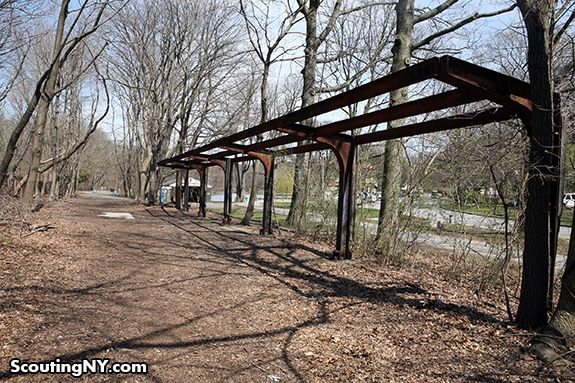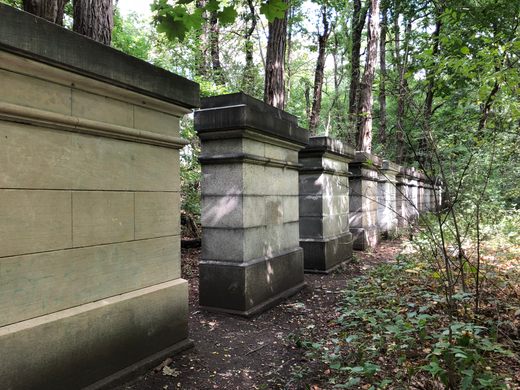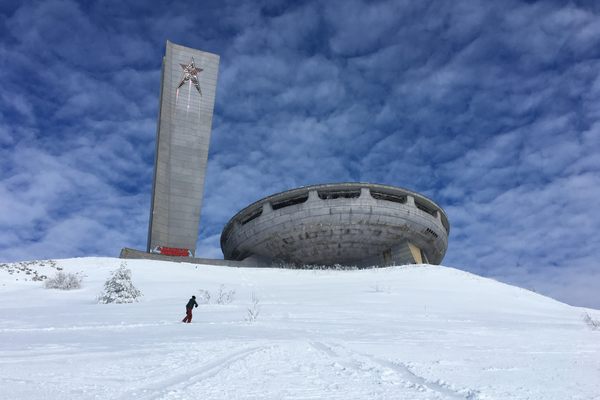Van Cortlandt Park Monoliths
Small monoliths of several varieties of stone sit alongside a wooded path in the Bronx.
On the side of a walking trail in a wooded Bronx park sits a row of small monoliths made up of a variety of stones, evenly spaced, with no markings except the familiar run of graffiti.
The stones exude an air of mystery, as if they’re some sort of ancient monument in the middle of the Bronx. Their origins, though, are tied to a modern construction project, the erection of Grand Central Terminal more than 100 years ago.
When plans were drawn up for the construction of Grand Central at the beginning of the 20th century, stone samples were imported to New York and left out to determine how they would fare in the elements. In the end, however, cost rather than durability won out and Grand Central was built out of inexpensive Indiana limestone.
The monoliths’ location along the trail in the Bronx is no accident. From 1870 to 1958, a commuter rail line, the Putnam Line, ran through the area. Freight trains would continue to use the line until the 1980s. After the line shut down, the tracks were covered over with walking trails. Relics from the railway remain along the path. Rusted-out skeletal remains of train stations and old railway bridges spring up along the trail, the only remnants of a forgotten railroad.
Know Before You Go
Take the 1 train to 242nd St and use the nearest entrance to the park; eventually your path will cross the Old Putnam Trail. After you pass under the overpass, make a left and follow the pathway until you can head left (northwest). To your left you should see the skeleton of an old railway shelter. Go right and follow the trail a short walk past where there's an entrance to the John Kieran Nature Trail on the right (by the lake); you should see the monoliths on your left. If you continue walking along the Old Putnam Trail you'll start seeing railroad ties in the path just past where it threads between Van Cortlandt Lake and a pond; the ties appear all the way along the path until it terminates at the park border and becomes the South County Trailway (which is paved).




























Follow us on Twitter to get the latest on the world's hidden wonders.
Like us on Facebook to get the latest on the world's hidden wonders.
Follow us on Twitter Like us on Facebook